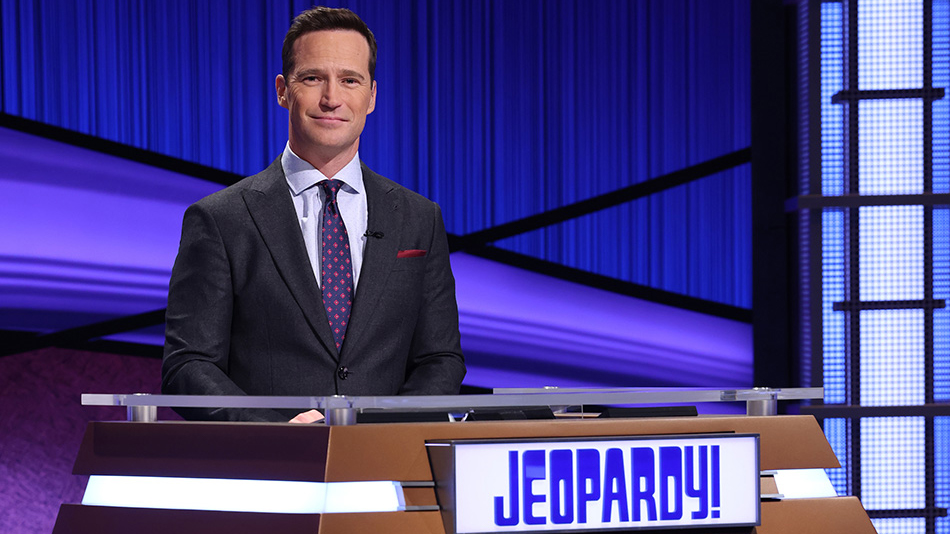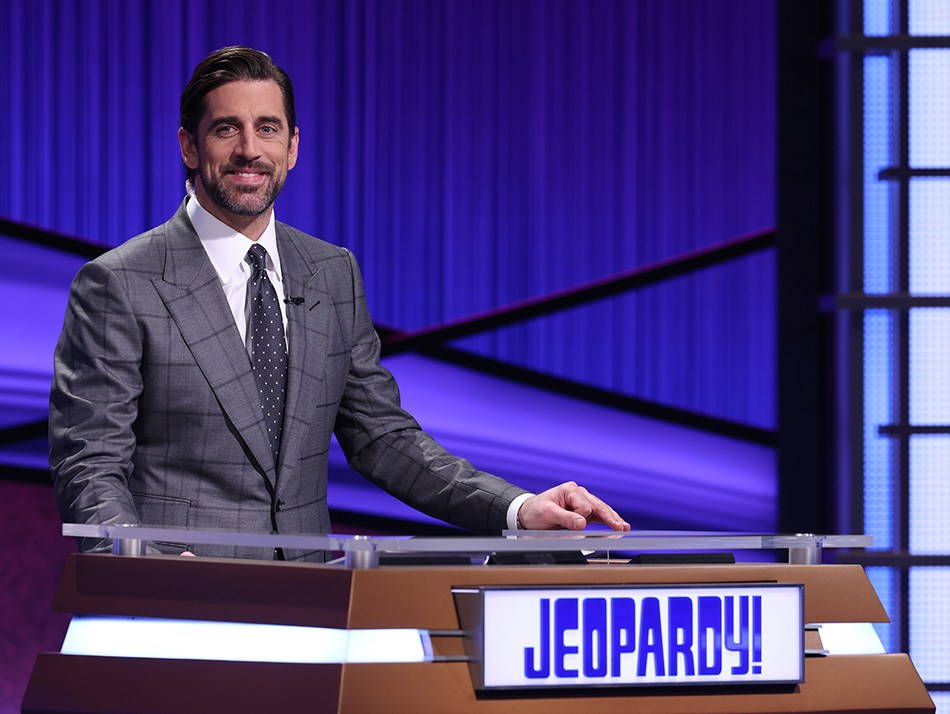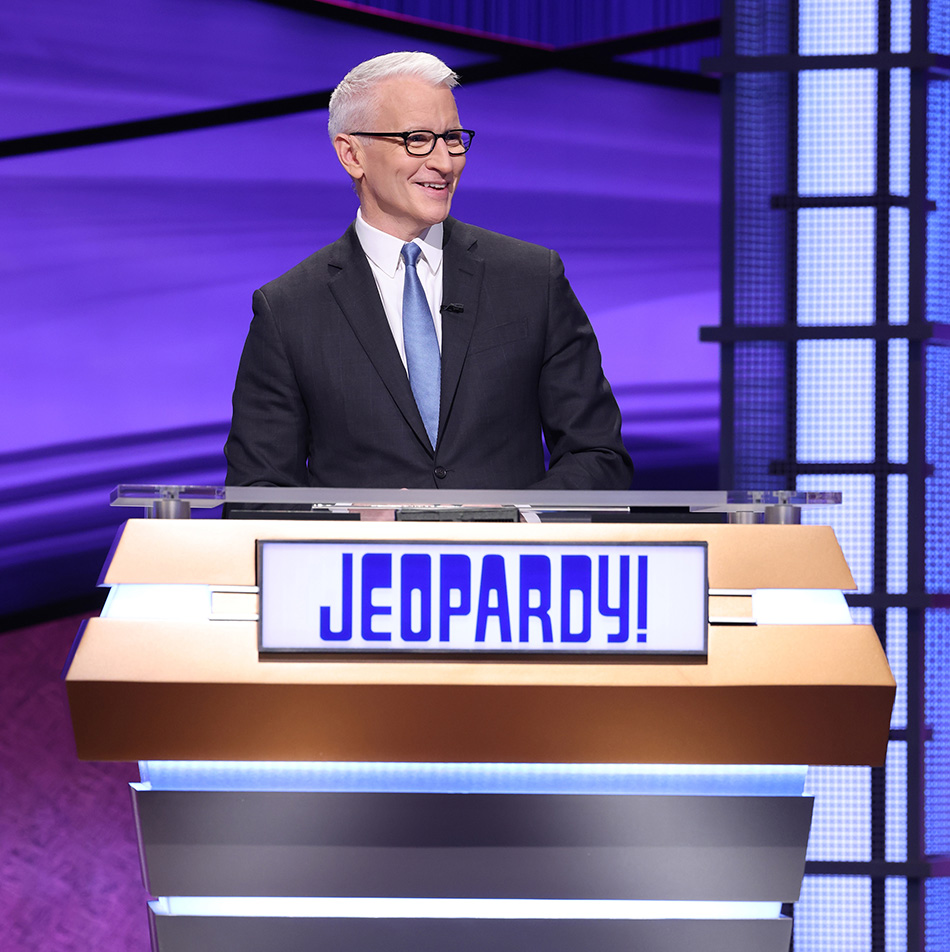‘Jeopardy!’ EP Mike Richards: Guest Hosts Were Part of Fans’ Grieving Process
Season 38 will see a permanent host named to helm game show into future

The smarter way to stay on top of broadcasting and cable industry. Sign up below
You are now subscribed
Your newsletter sign-up was successful
When iconic Jeopardy! host Alex Trebek died on Nov. 8, 2020, of stage 4 pancreatic cancer, the loss came as a shock to fans around the world even though Trebek had been talking openly about his diagnosis for more than a year.
What came next had to be handled delicately, but luckily for Jeopardy!, new-ish executive producer Mike Richards had a plan in place. By the time the show ran out of new episodes with Trebek at the podium, Richards had established a lineup of respected guest hosts to take the show into its next era, including Ken Jennings, Katie Couric, Aaron Rodgers, Mayim Bialik, Anderson Cooper, Dr. Mehmet Oz, George Stephanopoulos, Robin Roberts, LeVar Burton and several more.
The transition has been a fair amount of work for Richards and the team of pros at Sony Pictures Television’s long-running game show, but the process has also had its own rewards. Jeopardy! has been syndication’s top-rated game show for almost all of 2021, despite the loss of Trebek.
Also Read: ‘Who Is the Next Jeopardy! Host?’ The Answer Awaits
In this Q&A with B+C/Multichannel News, Richards talks about why the show went with guest hosts, how he and his team got them up to speed, why he ended up behind the podium himself and what comes next for Jeopardy! as it heads into season 38.
B+C: Did you always know you were going to rely on guest hosts whenever Alex’s run ended?
Mike Richards: Using guest hosts was always the plan. Going into even an interim host would have been difficult for the fans as well as difficult for us, the show’s production, and everyone who cared about Alex. That process needed time and it needed to have a variety of different people — fans, producers, focus groups — narrow in on all of it. What was it exactly that we wanted out of our next Jeopardy! host? We knew that we wouldn’t be able to find the next Alex Trebek, because that doesn’t exist, so what was it exactly that we were looking for?
The smarter way to stay on top of broadcasting and cable industry. Sign up below
B+C: So what were you looking for?
MR: Very early on, we came up with a list of qualities that this person should have. The list wasn’t about what they shouldn’t be, knowing that no one would check every box. We wanted them to be credible, to have a good voice, to feel like they were caring for the contestants and on the contestants’ side, and to present the show in a manner deserving of Jeopardy! It was a number of things like that, plus they needed to have a little bit of a sense of humor.
Watch: Alex Trebek Hosting 'Jeopardy!' Through the Years
B+C: I feel like humor is one of the most important qualities to look for.
MR: I don’t know that it’s the most important. If you aren’t a great broadcaster, don’t have a great voice, aren’t a great arbiter of the game, then being funny doesn’t matter, but it definitely is an important part. I always think that a great host in some way reflects the audience and is looked at to say, ‘Wow, that was amazing.’ The host’s job is to heighten the moment, increase the tension, lighten the mood — their job is to reflect the audience’s mood and heighten the experience. This is not someone who is necessarily going head to head with the contestants. It’s someone who lets the contestants shine and in letting them shine, they shine.
I grew up watching Johnny Carson; that is an important thing to look at. Alex was brilliant at it. [Alex] was never introduced as the star of Jeopardy!, he was always the host of Jeopardy! That is such a representation of the mentality of our show and of him. It’s the contestants who are the celebrities. The whole machine is built around them.
Also Read: 'Jeopardy!' Guest Hosts' Ratings: How They Rank After 16 Weeks

B+C: There were obviously a lot of people who wanted to guest host and who lobbied to do it, such as Green Bay Packers quarterback Aaron Rodgers, who just finished up his two-week run and didn’t seem like an obvious choice when you selected him. How did you handle those asks, and how did you make your choices?
MR: Jeopardy! is maybe the toughest show on TV to host. It’s so intense and you have to think quickly on your feet. The host of Jeopardy! is the person who reads every piece of content and who calls on the person who rings in and does it in a split second. That’s so important because if you wait, the show becomes so slow. It is so intense and mentally taxing to host the show and to manage it. It really came down to who could do it.
With Rodgers, you start to look at what I looked at with him — such as how he has been described by teammates and coaches, how does he make split-second decisions, does he stay calm, can he be coached? I also went back and watched him on Celebrity Jeopardy! and I really thought the guy could do it even though he had done barely any broadcasting.
B+C: How are you going to choose the next host and does that job fall on you? Also, was all of this just a ruse so that you could choose yourself at the end, like Dick Cheney running for vice president?
MR: We are going to look at everyone and consider the data and analytics, testing and focus groups and ultimately who we think the correct person is in the long term. My role is not to choose the person, my role is to make everyone as great as they can be in the role. Look at how Aaron was received or how [CNN’s] Anderson [Cooper] has been received — our production and producers are doing a very good job of giving them great looks. That’s the goal: Make everyone look great. Ultimately, the team at Sony will decide what they think is the right thing for the show.
We aren’t looking for a three-year host, we’re looking for a 10-year or a 20-year host. Stability is one of the show’s strengths, so we need to consider who’s got a 20-year horizon and who can focus on the show and make it great over that time.
As for me hosting, I was never meant to be a part of that process — I was just meant to manage — but COVID had other plans. Sony will ask me how people are in the studio and how their days on set went so I will be part of that conversation but there’s a bigger group of stakeholders who will weigh in. My job is really to make everyone really good at this. The shoot days are brutal, because teaching someone the show is intense. We give everything we can to them to let them shine and then we serve it up.
B+C: How well have people been prepared when they came in to guest host?
MR: People have approached this in many different ways. Some have barely watched the show and then come in and worked hard on rehearsal day. Then there are people who watched hours and hours of tape and went back and looked at things. It’s been very different how people have prepared. I have had all different levels of questions.
What has been common to everyone is that there is a humility that no matter what you’ve done before, when you walk in that door and stand behind that lectern, you are stepping into something incredibly difficult. No one has been in any way arrogant about it. These are all very successful people — they have moderated presidential debates, interviewed world leaders, won Super Bowls — and hosting this game has humbled all of them. It’s a real testament to the brand and to what Alex did. Every single host at some point in their opening monologue has said this is so much harder than I realized.

B+C: Michael Gelman, longtime executive producer of Live with Kelly and Ryan, has been through this guest-host process two times and both times the search has resulted in higher ratings for Live. Did you talk to him at all about how to do this?
MR: I did call Michael Gelman and we did talk this through. He is the best and even though I had never talked to him before I thought, ‘I don’t have to think this through on my own, why don’t I give him a call?’
We were on the phone for an hour and he was like, ‘Here are the upsides and the downsides.’ The best part of the guest-host process is that the audience isn’t seeing them for the first time when you announce the final host so it’s not a complete shock to the system. That’s important psychologically to the audience, especially because some people are going to be upset no matter who you pick.
Gelman also said, ‘You are going to get bad press, so you have to be ready for it.’ And then it dies down, and the fans come back. Also, whoever you pick will get beat up, it doesn’t matter who it is, so that person has to be resilient. That was what happened to Drew Carey on The Price Is Right. He got destroyed for years and then at some point, everyone looked up and was like, ‘Oh Drew Carey, I really like that guy.’ That’s exactly what will happen here.
B+C: Will you have a permanent host in place by the time season 38 premieres or do you plan to have guest hosts next season as well?
MR: By the end of July or early August, we will have a permanent host in place. Some of the episodes won’t have aired before we make this decision, but we’ve already been doing lots of research on all of the guest hosts.
Contributing editor Paige Albiniak has been covering the business of television for more than 25 years. She is a longtime contributor to Next TV, Broadcasting + Cable and Multichannel News. She concurrently serves as editorial director for The Global Entertainment Marketing Academy of Arts & Sciences (G.E.M.A.). She has written for such publications as TVNewsCheck, The New York Post, Variety, CBS Watch and more. Albiniak was B+C’s Los Angeles bureau chief from September 2002 to 2004, and an associate editor covering Congress and lobbying for the magazine in Washington, D.C., from January 1997 - September 2002.

